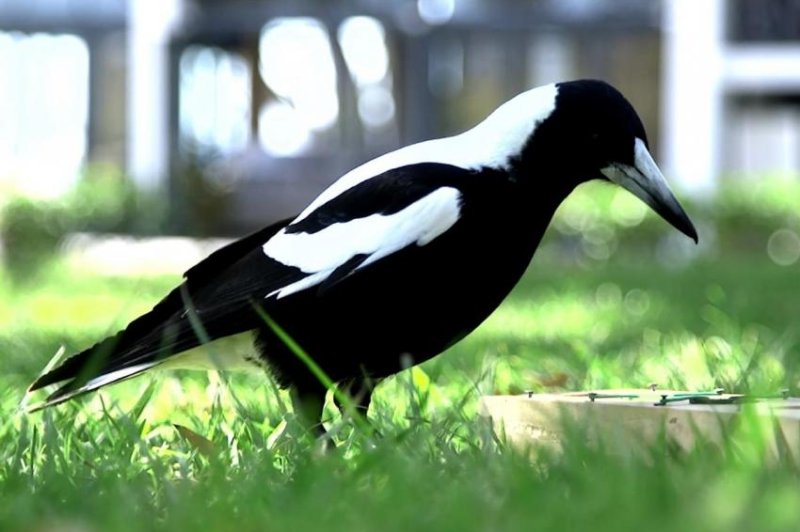Researchers tested the intelligence of magpies from different sized groups. Photo by Benjamin Ashton/University of Western Australia
Feb. 7 (UPI) -- In a new study, scientists found magpies living in larger groups of birds were more intelligent.
Researchers from the University of Exeter and the University of Western Australia used four different cognitive tasks to measure the intelligence of wild Australian magpies.
"We showed that individuals living in larger groups in the wild show elevated cognitive performance," Alex Thornton, an ecologist at Exeter, said in a news release. "Repeated testing of juveniles at different ages showed that the link between group size and intelligence emerged in early life."
The study -- published this week in the journal Nature -- also showed more intelligent females produced more offspring.
The intelligence-measuring tasks required the birds to learn associations between colors and food, as well as memorize the location of hidden food. Another test measured birds' impulse control.
Scientists tested birds from 14 different groups, ranging in size from three to 12 birds.
"The challenges of living in complex social groups have long been thought to drive cognitive evolution," said Ben Ashton, a researcher from the University of Western Australia. "However, evidence to support this is contentious, and has recently been called into question. Our results suggest that the social environment plays a key role in the development of cognition."
The study also showed an evolutionary benefit to increased cognition, as smarter female birds had more reproductive success.
"Together, these results support the idea that the social environment plays an important role in cognitive evolution," Ashton said.















